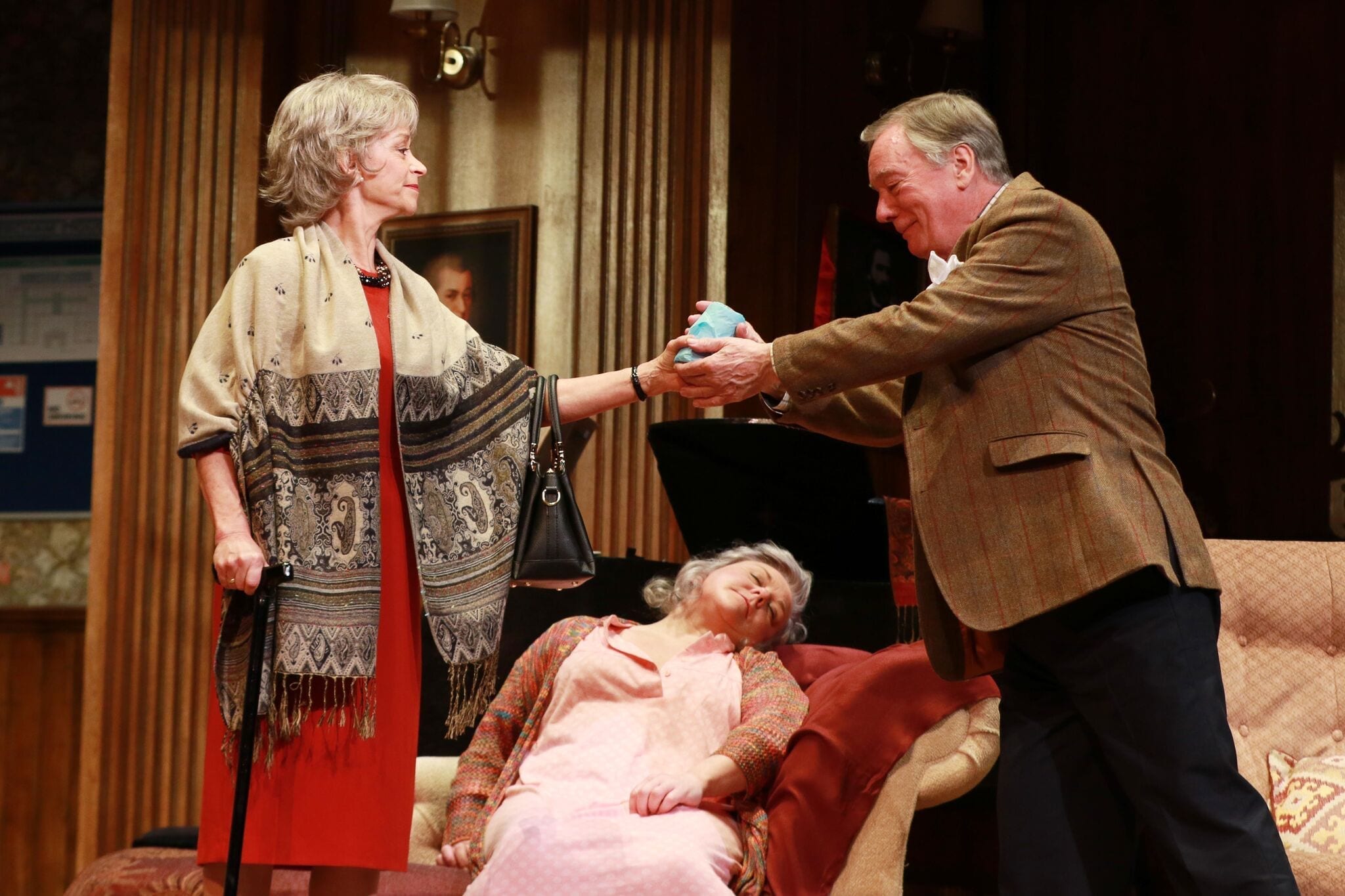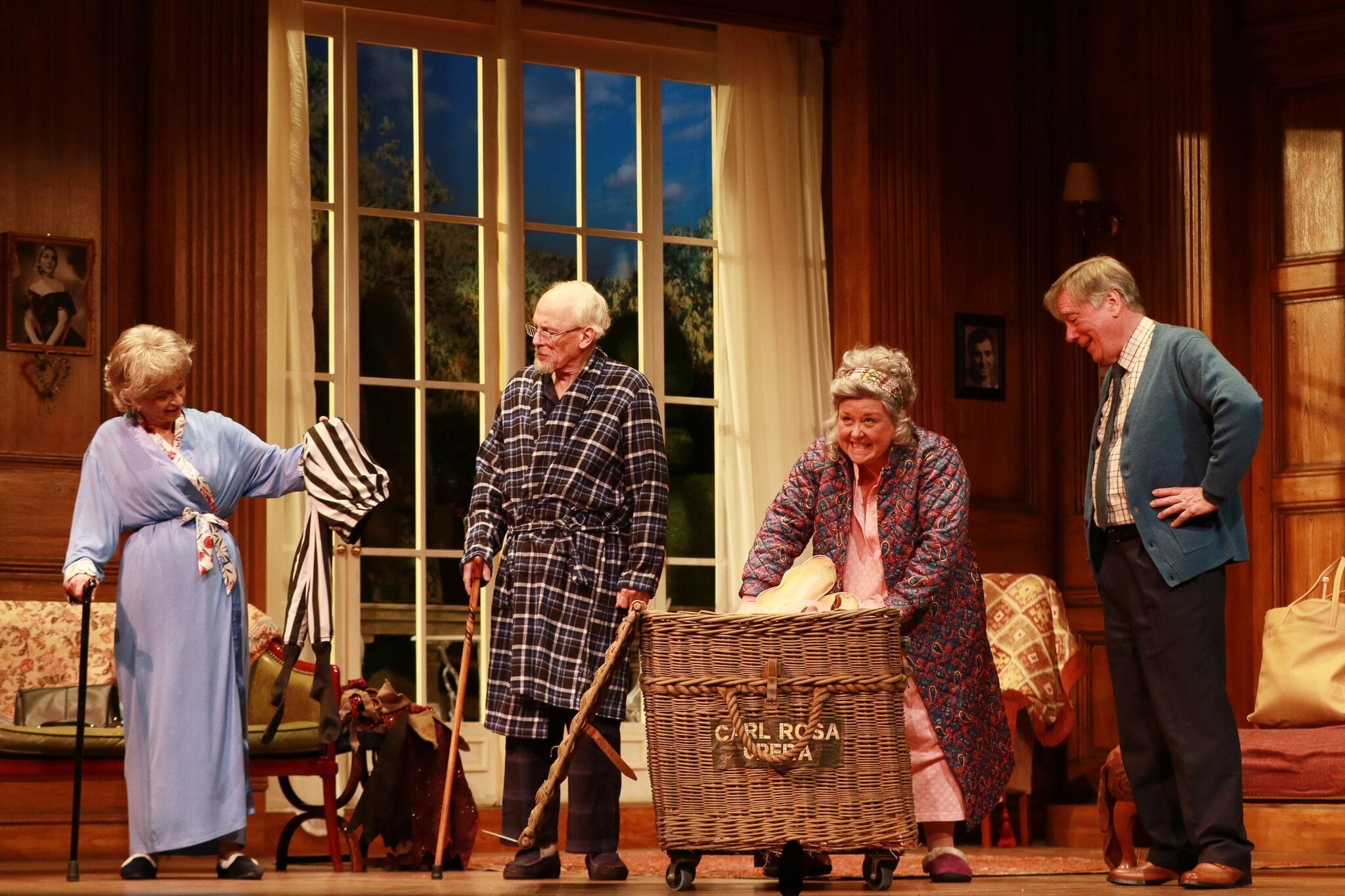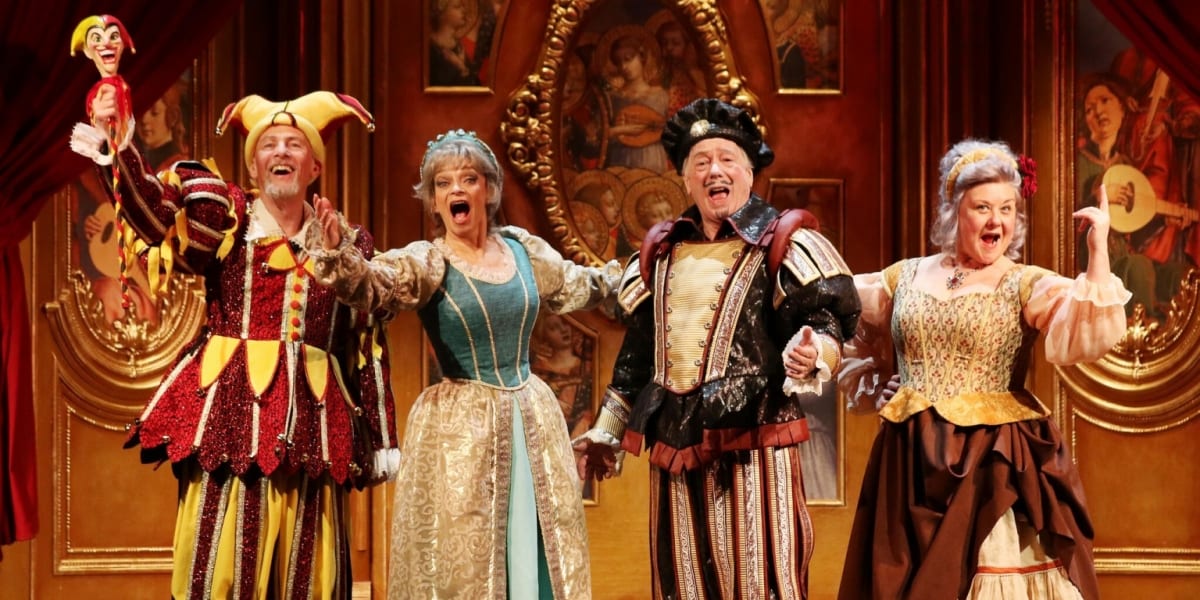Ronald Harwood has a real talent for conjuring up the world of theatre and the pains and pleasures of those who make their living by performing, in this case a group of retired opera singers. This charming but insubstantial comedy has a very clear target audience – the clue is in the age of the protagonists – and on the first night at Richmond that audience really enjoyed the play. And any entertainment that ends with the famous quartet from Rigoletto gets my vote.

Wilfred, Reginald, and Cecily – the names are carefully chosen – are elderly opera singers living in a retirement home in the country. Although “in reduced circumstances”, they cling onto their star status – they speak disparagingly of the chorus members and orchestral players who also live in the establishment. This little group – motto NSP (No Self Pity) – is thrown into disarray by the arrival of Jean, a real diva, who was also, very briefly, the wife of Reginald. The play focusses on their relationships and gently reveals the truth about their insecurities as they prepare to perform a quartet from Rigoletto at the home’s annual Verdi night gala.
Former star tenor Reginald, played by Jeff Rawle, is an anxious little man fussing over rules and regulations and prone to calling “meetings” when decisions are needed. Rawle plays him with a hesitant charm interrupted only by his long harboured resentment over Jean’s desertion and the lack of marmalade at breakfast. Paul Nicholas plays baritone Wilfred as a soft centred Lothario given to paying lewd compliments to Cecily, usually when she is asleep. The splendid Wendi Peters throws dignity to the wind and plays Cecily as a sad old frump on the verge of dementia – but her warm hearted determination to support her friends is one of the more optimistic threads in the story and her appearance as Maddalena in the final quartet is triumphant. Sue Holderness as the faded diva Jean brings an icy dignity to difficult role, just about convincing us that she is only holding together by remembering past glories and ignoring current penury.

Apart from the final musical moment there is only one set. It is a pretty realistic representation of the music room of a country house in Kent and, given the relative immobility of three of the characters – new hips needed! – there is little movement. Director Peter Rowe concentrates on the quirks and flaws of the four protagonists and lets Harwood’s insights into the pains of lost celebrity – and of lost capacity to produce the voices that captivate opera audiences – emerge in their own way. Unfortunately the insightful moments of pathos and bravery are all too rare and there are too many moments when clichés about old age clog the dialogue. And when all was said and done only Cecily convinced me that she might once have sung at Covent Garden.
This play is a pleasant and undemanding evening at the theatre and will bring enjoyment to its target audience but it does not quite deliver as a sympathetic and revealing comedy about old age – or about what life is like when a singer can no longer reach a top ‘A’.

